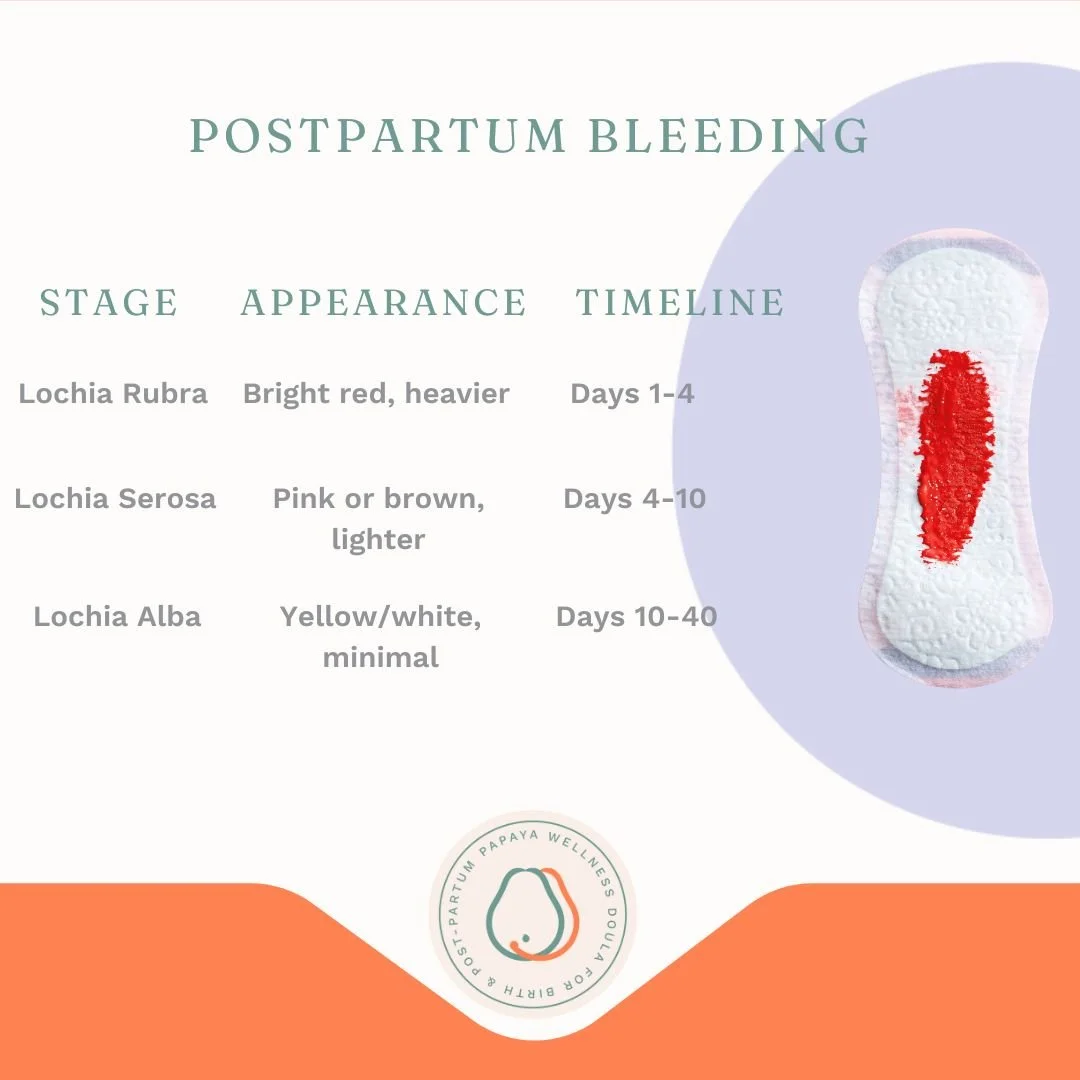Postpartum Bleeding (Lochia) A Doula’s Guide for New Mums in Singapore
Welcoming your baby into the world is a remarkable experience, but the recovery period can bring unexpected changes. One of the most common and sometimes confusing parts of postpartum recovery is the bleeding after birth , also known as lochia. As a birth and postpartum doula, I want to reassure and inform you about what’s normal, when to seek help, and how to care for yourself during this time.
One thing to note is that whether you delivered vaginally or by cesarean section, postpartum bleeding is a natural part of your recovery. It’s how your body cleanses and heals after birth. Everyone experiences lochia
How Long Does Postpartum Bleeding Last?
Postpartum bleeding is your body’s way of shedding the blood, tissue, and mucus that lined your uterus during pregnancy. For most new mums, this bleeding lasts about 4 to 6 weeks, gradually tapering off over time. Some women may notice a sudden increase or change even weeks after birth. This is usually okay, but listen to your body and rest as needed. Sometimes this also means you are doing too much and need to slow down your body still healing.
What Are the Stages of Lochia?
Lochia changes over time, moving through three stages:
Each stage signals your healing progress. Some mums may notice lochia stopping and starting again, or changes in color this is usually part of the normal cycle.
Is My Bleeding Normal?
It’s normal for bleeding to be heavier in the first few days and lighten gradually. Passing small clots (smaller than a coin), mild cramping, and changes in color are expected. What’s not normal? Soaking more than one pad an hour, clots bigger than a plum, foul smell, severe pain, or bright red bleeding that suddenly gets heavier.
When Should I Worry or Call My Doctor?
Reach out to your healthcare provider if:
You soak two pads an hour for two hours or more
You notice large clots
You have severe, sudden pain or dizziness
Bleeding is paired with fever, shivering, or foul smell
Even if you’re unsure, it’s always okay to check in Singapore, most clinics and hospitals can guide you on the next steps or if something that need to be done.
Why Does Bleeding Sometimes Increase After Activity?
Physical activity like walking, climbing stairs, or breastfeeding can temporarily increase bleeding. Try to pace yourself and rest as needed.
When Does Lochia Change Color or Stop Completely?
Lochia often shifts from red to pink/brown to creamy/white before stopping altogether, usually by week six. If you notice bleeding stopping and starting again, especially with changes in activity, this can be part of the normal process.
Is It Normal for Bleeding to Stop and Start Again?
Yes it’s common for lochia to slow down, then restart if you’ve been more active. If the bleeding gets heavy again or comes with worrying symptoms, reach out to your care provider.
How Do I Tell the Difference Between Lochia and My First Period?
Lochia differs from your period in that it begins right after delivery, tends to be heavier and lasts longer, and shifts colors as your uterus heals. Your first period postpartum might return anywhere from several weeks to months later, especially if you’re not breastfeeding.
Can Breastfeeding Affect Bleeding?
Yes breastfeeding encourages uterine contractions (thanks to oxytocin), which can help reduce bleeding and speed up healing. Sometimes bleeding may spike after nursing, but it should settle down again.
Doula’s Practical Tips
Use thick, comfortable maternity pads, avoid tampons or menstrual cup.
Rest and hydrate. Try gentle walks but avoid strenuous activity, especially at first.
Track your bleeding and alert your healthcare provider to any sudden changes or symptoms.
Every postpartum journey is unique. Most bleeding is normal, a healthy sign your body is healing. Don’t hesitate to reach out for support whether it’s your doula or doctor, you deserve attentive postpartum care. Your wellbeing is just as important as your baby’s.
If you have more specific questions or want a personalized postpartum plan, feel free to reach out. You’re not alone in this journey!

